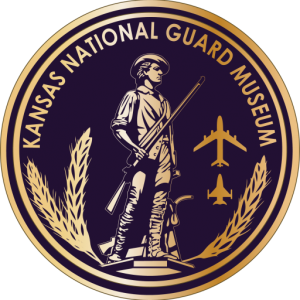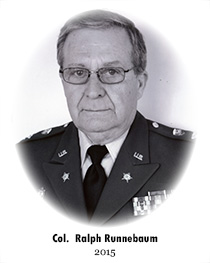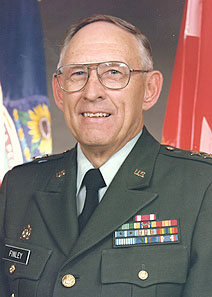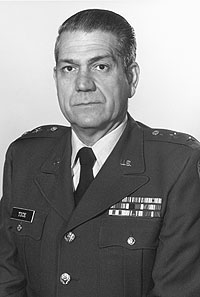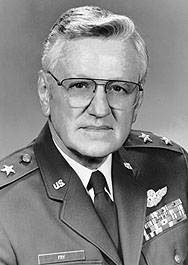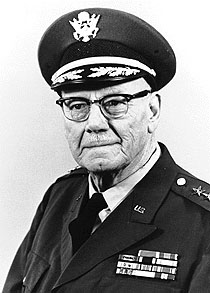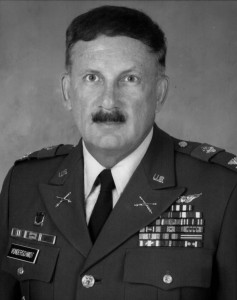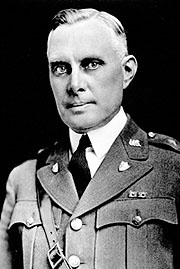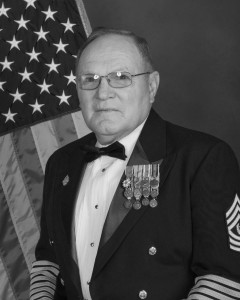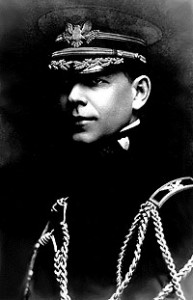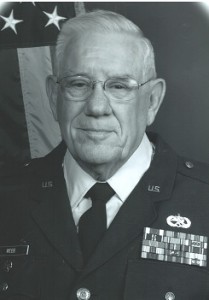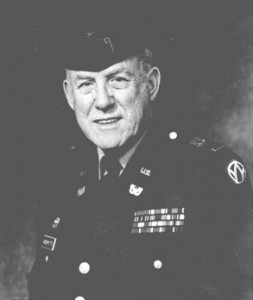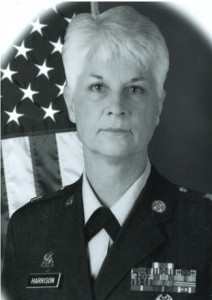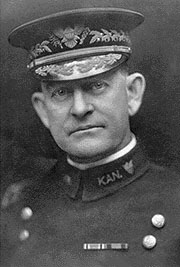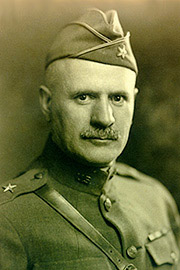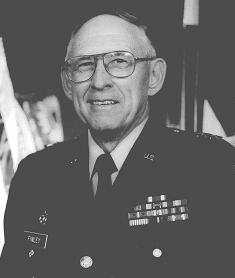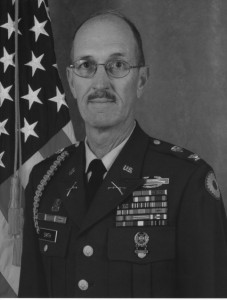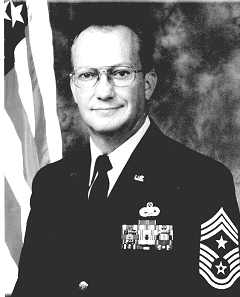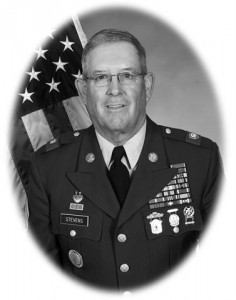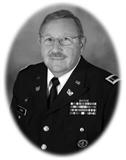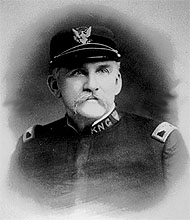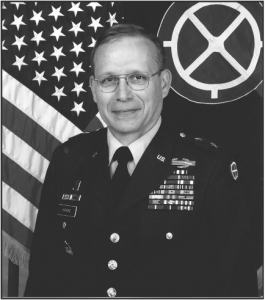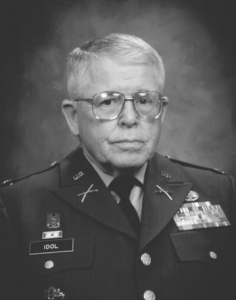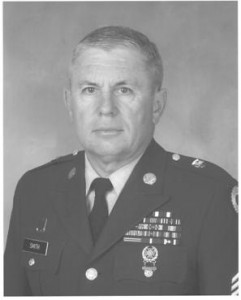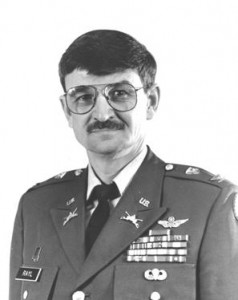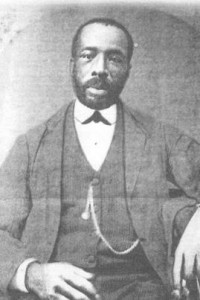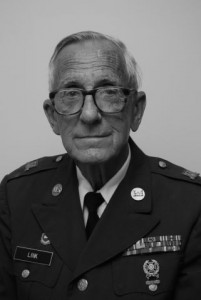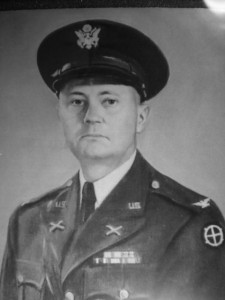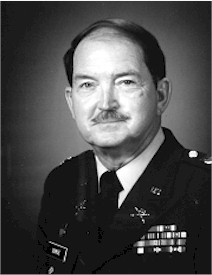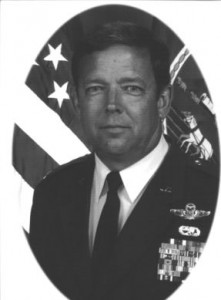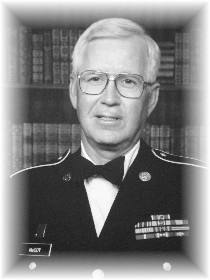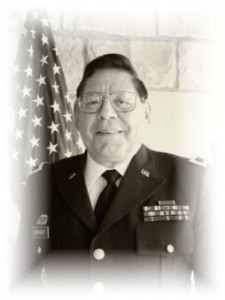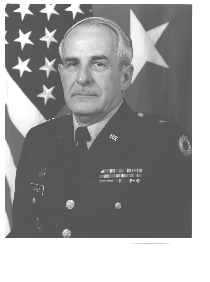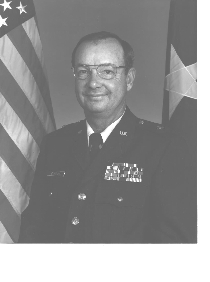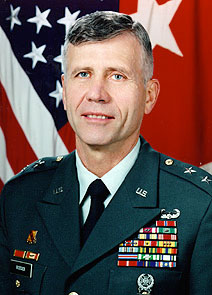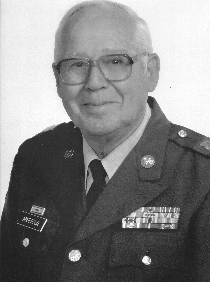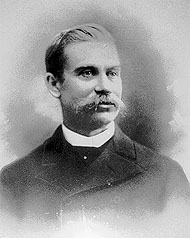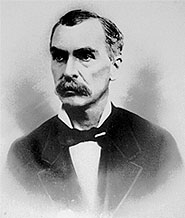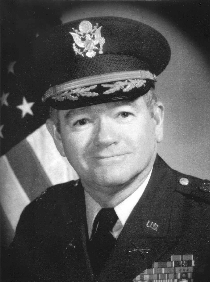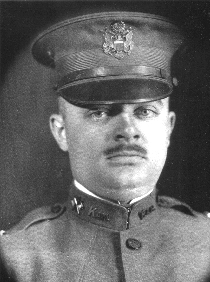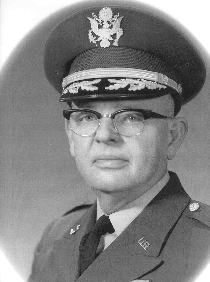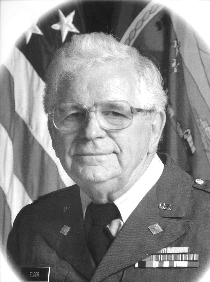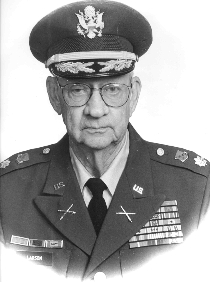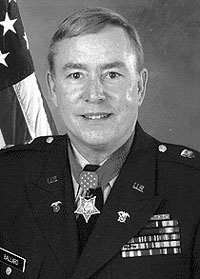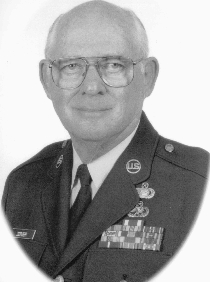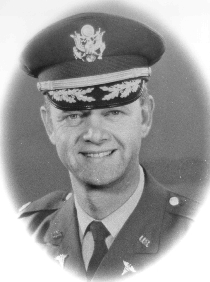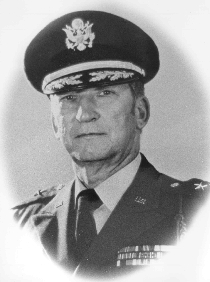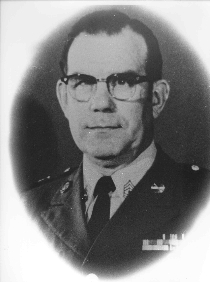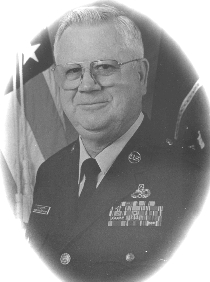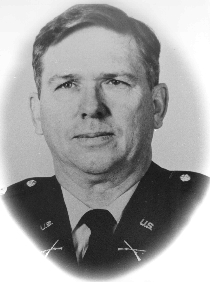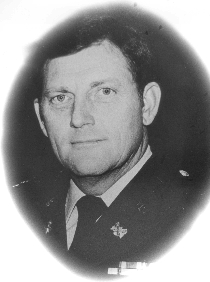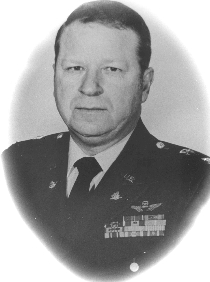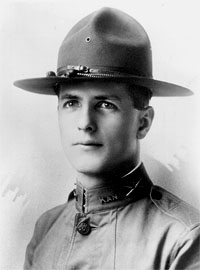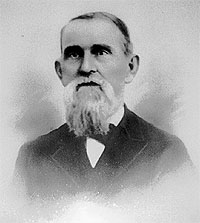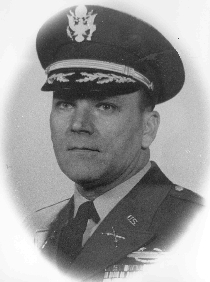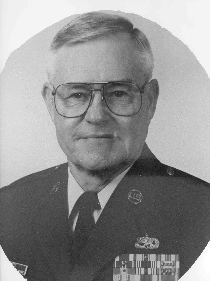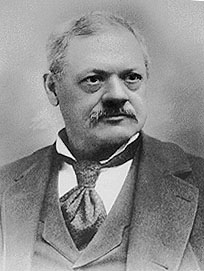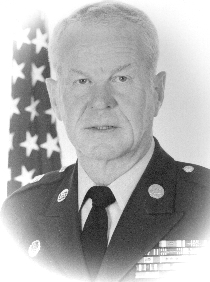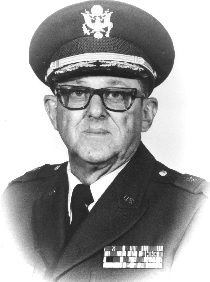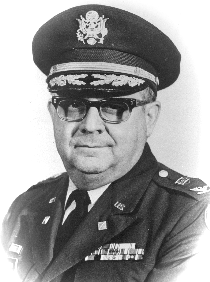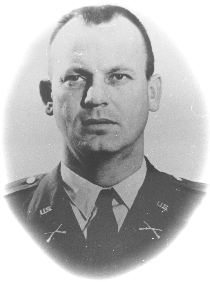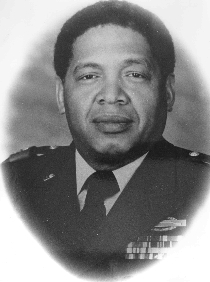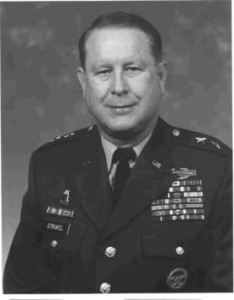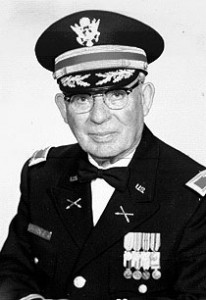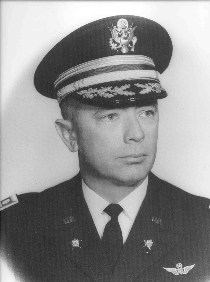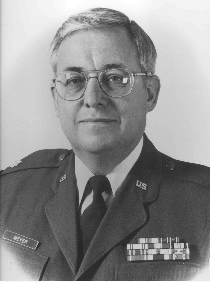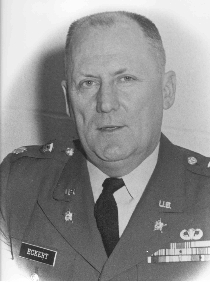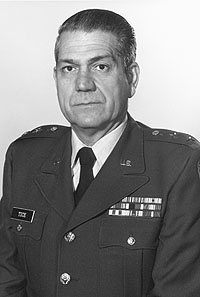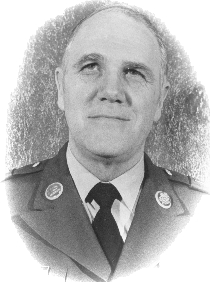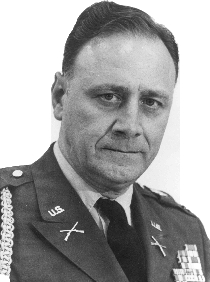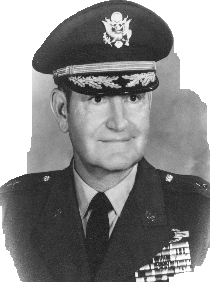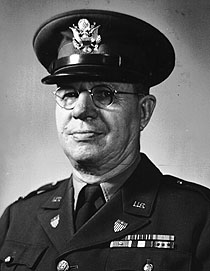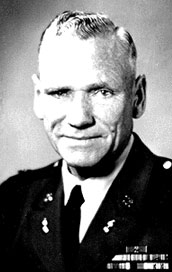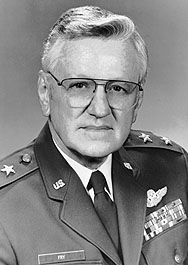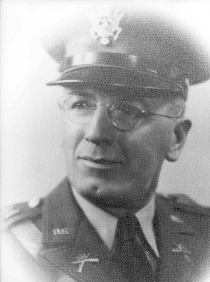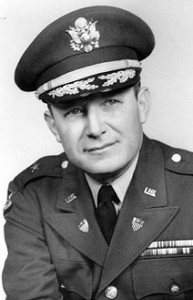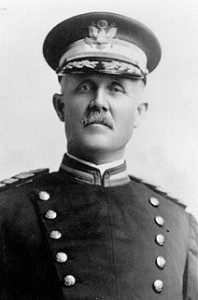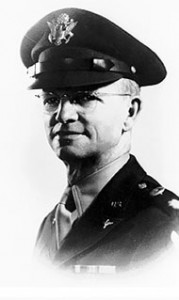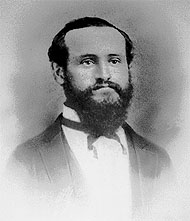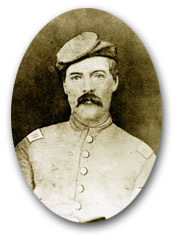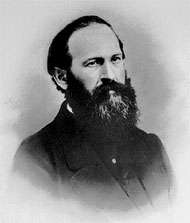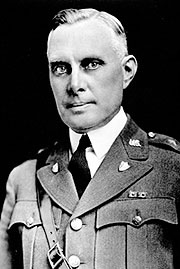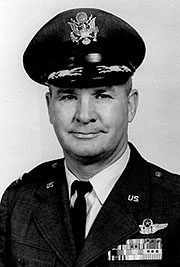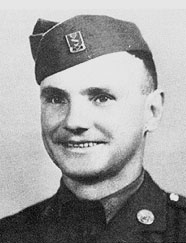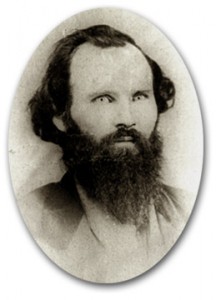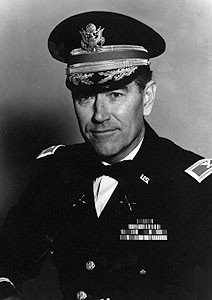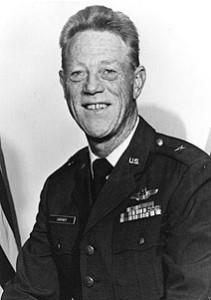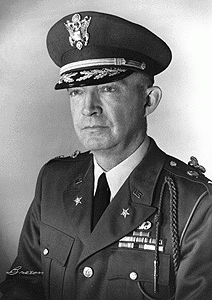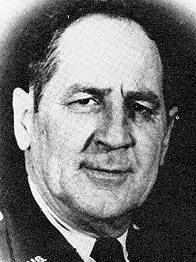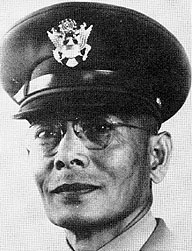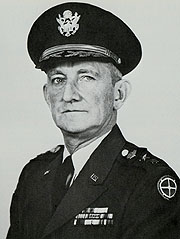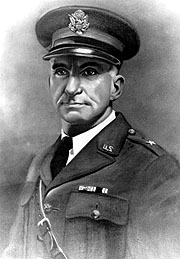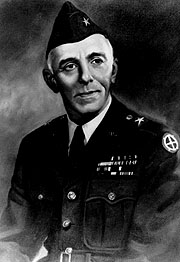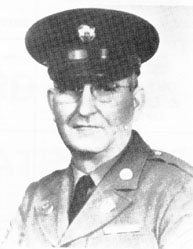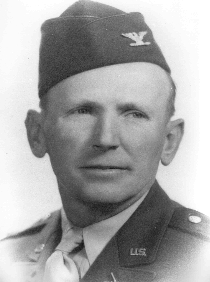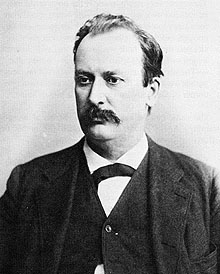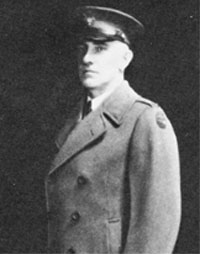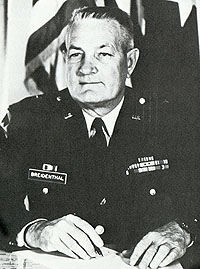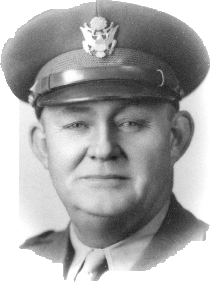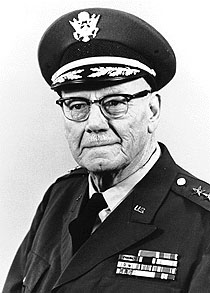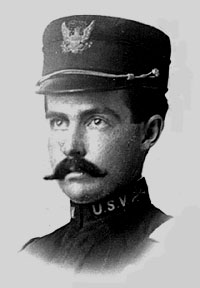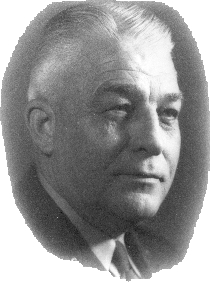The 12 companies of the 21st Kansas Volunteers were mustered into United States service in Topeka from May 12-14, 1898. The regiment left town by rail on May 17 for its new home, Camp George H. Thomas. Camp Thomas was located on the site of the Civil War battle of Chickamauga, Ga. There is little history of the 21st, but fortunately several letters from Walter Muntz have survived. From Camp Thomas, Pvt. Walter Muntz wrote to his father and sister in Conway Springs, Kan. on May 23:
I received your letter inclosing one from Miss Dickinson just as we were tearing down our tents in Topeka last Tuesday and barely had time to send you a postal card. I would have written you sooner since arriving here but had nothing to write on. This morning I secured permission to leave camp and walked four miles to get the paper on which I am writing this. While after paper I also bought yeast and we expect to have some bread tomorrow, the first since leaving Topeka. While on the train we had hard tack and plenty of corned beef, coffee and beans, but since coming here the grub has been awful. The roads are so blocked with incoming trains of soldiers that it is impossible to get the food here. However every regiment experienced the same thing the first few days they were here, but after their commissary was established got plenty so we will undoubtedly fare all right in a day or two.
I saved up some hard tack while in Topeka to send to you but have since eaten it. Will send you a specimen some time in the future. We also suffer some from a lack of water. There is plenty here in streams and creeks but some of it has been condemned as unhealthy and sufficient wells have not been dug yet. Armed guards are stationed at every well and spring to prevent waste and the water from being poisoned. We have plenty to drink but none to wash in. I managed to get a wash yesterday by walking about five miles to a river. All this will soon be remedied though, as wells are being dug everywhere. So far we have been carrying our water for drinking a mile or two miles.
We left Topeka Tuesday afternoon about 2 p.m. and arrived in Chattanooga at 7 a.m. Thursday. We were unable to get out to this park which is 10 miles from Chattanooga until after dark Thursday on account of the R.R. being blockaded. After having supper of water, hard tack and canned beans we went to sleep on the side of a hill about as steep as the roof of an ordinary house and covered with rocks. In the morning after a breakfast of coffee and hard tack we marched about 3 miles to our present location and set up our tents. That day we had another meal of coffee and boiled potatoes. Saturday we had two very slim meals and Sunday the same. This morning we had coffee and a pancake to each man, and have just finished dinner consisting of water and a pint of potato soup. We are promised a good supper however. We have had plenty of flour for several days but have been unable to make anything but pancakes on account of having nothing to bake it in. On the march each man cooks for himself, but in camp each company has a cook who cooks for the entire company of 84 men.
The weather down here is quite hot and many regiments from the far northern states are suffering considerably from the heat and our drilling is very moderate. We have three men in the hospital from this company, one with measles, one with a broken collar bone, and one with tonsillitis. Harry Colhauer was complaining yesterday but is better now. I had a cold while in Topeka, but have recovered now and never felt better in my life. We are camped right in the woods among hills, where the air is pure and I don’t think there is any danger at all that I will get sick unless it gets much worse than we have had it yet. This camp is five by eight miles and is situated right where the battle of three days ago was fought in the Civil War. There are 40,000 soldiers camped here at present and more arriving every day. Numbers of the boys have found bullets, bayonets, etc. from the Civil War and monuments are here by the hundreds erected by the different states showing where their men fought and where the generals were killed, etc. All day Thursday while on the train we were within a couple of miles of Missionary Ridge and Lookout Mountain, where the battle above the clouds was fought. Lookout Mountain is a very tame affair and is only a respectable hill. The men from Pennsylvania laugh at the idea of calling it a mountain. I was one of the outside guards on the train Wednesday night and expected to see some fine scenery in the mountains by moonlight but was greatly disappointed at the size of the mountains.
By the way I have been disappointed in the entire country. We passed through Missouri, Indiana, Kentucky, Illinois and Tennessee and I didn’t see a mile of land that would begin to compare with Sumner County…
Charlie Booth had an experience in the guard house yesterday on account of a mistake. He was guarding 15 or 16 mules when one of them escaped and he was arrested for not reporting it, although he had done so, and it was his corporal who had failed to report. In the Army when any thing happens it has to go through 10 or 15 hands before reaching the colonel and when anyone does not continue the report then the entire crowd is liable to be arrested before the right party is found. Chas. spent eight hours in the guard house before the error was discovered.
Since coming here I have done guard duty, fatigue, and police duty, and will now be at liberty for 10 or 12 days with the exception of drilling, so that I will have it quite easy for some time.
Our uniforms, etc. have arrived and will be issued as soon as they are unloaded, probably tomorrow. There are hundreds of cars of provisions, uniforms, guns, etc. on track at Chattanooga awaiting unloading. By the way there is a rumor that we will be sent to San Francisco as soon as we are equipped but I do not place much faith in it.
However write me here and it will follow me around the world if properly addressed.
I have formed quite a number of friendships in the Company and know a lot of fine fellows. We have a fine company and the standard of intelligence is high. I believe that three fourths of the men could take a Sumner Co. examination tomorrow and secure certificates. There are college men, lawyers, doctors, mechanics, farm hands, music teachers, drummers, and a couple of [tramps ?] so you see we are a “cosmopolitan set.”
On July 6, Muntz again writes home:
…A week ago Sunday I was on guard at a farm house a couple of miles out of the p[ar]k to keep the soldiers from stealing the farmers fruit, etc. I had the first taste of milk and fruit then since joining the Army…Yesterday our company went out to target practice, each man shooting 10 shots at 160 yards. My shooting was just about an average. I spent some time in the rifle pits signaling back where each shot struck. The pits are just 4 ft. deep and the targets are placed directly over them; 50 or 60 men shot at once and there was quite a warlike sound for several hours.
July 9, 1898:
…they have stopped issuing passes entirely. Soldiers got so thick in Chattanooga that they took charge of the town and ran it to suit themselves.
We were expecting to leave here for Santiago a few days ago, but the order has been changed and the time of our departure is unknown. Every body is anxious to go and chaffs at the delay.
Muntz was promoted to corporal on July 10. In a letter home of July 24 he states his expectation that the regiment will be sent to Puerto Rico, and he details the daily camp routine, to include his new duties as corporal:
Get up at 4:30 (15 minutes to dress and get squad out)
Roll call 4:45 (and then 15 min. calisthenics)
Breakfast 5:00
Police call 5:40 (Clean grounds, tents and see to health of squad)
Sick call 5:40
Drill 6:30 to 9:00 (See that squads keep step, etc., etc.)
At liberty till noon (Spend time washing, studying, etc.)
Dinner 12:00
Police 1 pm same as at 5:40
Noncommissioned officers school 1:30 to 2:30
Drill 3:30 to 5:00
Supper 5:15
Dress parade 6 to 7:00
Roll call 9:00
Taps 9:15
In the previous month the 21st had seen its first death when on June 14, 1898, Cpl. Ralph Worden had succumbed to spinal meningitis. The next to die was Pvt. Charles Root, who fell to typhoid on July 3. Eventually 21 men were to die from disease – 18 from typhoid and three from other causes. It appears that all of the typhoid cases were contracted at Camp Thomas. The cause of the deaths were due to unsanitary camp conditions, wrote historian Douglas R. Hartman:
Although the War Department originally believed Chickamauga Park was ideal for a large encampment, a later investigation revealed the area was unsuitable for maintaining a substantial number of men…The soil consisted of a thin layer of loam with underlying dense clay that held moisture close to the surface and restricted proper drainage. Water formed in large pools and provided a natural breeding ground for mosquitoes. Hot weather combined with mosquitoes and flies spread disease. Streams surrounding Camp Thomas quickly became fouled by sewage runoff from local farms and the encampment, prompting commanders to restrict Chickamauga Creek’s water for drinking or cooking….All attempts to procure large quantities of potable water failed, and guards had to be placed around drainage pools to keep thirsty soldiers from drinking contaminated standing water.
On Aug. 25 the regiment departed by rail for Camp Hamilton, Ky, and arrived there the following day. Muntz wrote home on Aug. 28:
Sometimes I feel that I ought to be at home and on others I want to go to Porto Rico or elsewhere, but as Uncle Sam will finally settle it for me [I] have quit bothering my head about the matter and am doing my best to get all I can out of this experience.
He also mentioned a song entitled “On to Cuba,” a copy of which a Miss Furlong had provided. He wrote that “our experience with this song was somewhat unfortunate. We sung it so often and so persistently that the entire camp became tired of it, and guyed us so that we quit singing it altogether.” His letter enclosed a copy of the lyrics, its chorus as follows:
On, on to Cuba,
Cuba shall be free.
Down with the Spanish flag
Up with the stripes and stars
Hurrah, hurrah, hurrah
God bears our sacred banner
It spreads from sea to sea
On, on to victory
For Cuba shall be free.
However, the Army did not need the 21st in Cuba or anywhere else. The regiment left Camp Hamilton on Sept. 25 and arrived at Fort Leavenworth on Sept. 27. The men were allowed to go home on furlough, and the regiment was officially mustered out on Dec. 10, 1898.
(Reprinted from Benedict, Bryce D. “21st Regiment Volunteers Bound for Chattanooga,” Plains Guardian, April 1998, pp. 18-19.)

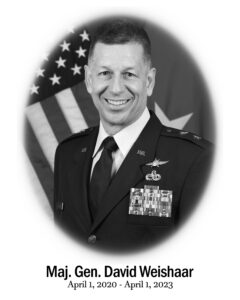 Maj Gen David Weishaar
Maj Gen David Weishaar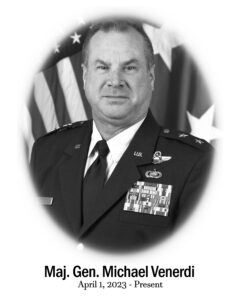
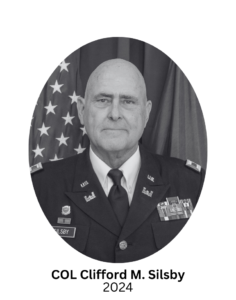
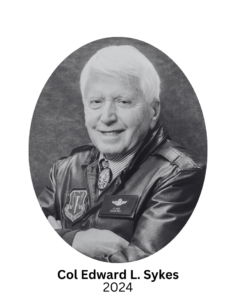
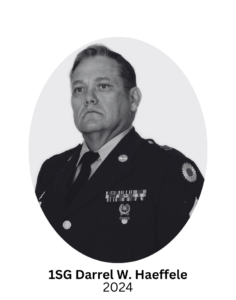 First Sergeant Darrel W. Haeffele was born on September 25, 1940, in Falls City, Nebraska. He graduated from Atchison High School in 1958. He attended Concordia College in Seward, NE for two years before starting a career in retail.
First Sergeant Darrel W. Haeffele was born on September 25, 1940, in Falls City, Nebraska. He graduated from Atchison High School in 1958. He attended Concordia College in Seward, NE for two years before starting a career in retail.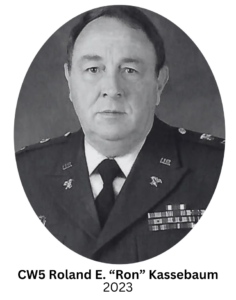 CW5 Roland E. “Ron” Kassebaum was born on February 21, 1946 in Deshler, Nebraska. He graduated from Hebron High School, Hebron, Nebraska in 1964. He attended Fairbury Junior College, Fairbury, Nebraska and the University of Nebraska, Lincoln, Nebraska, and received a Bachelor of Science Degree from the University of the State of New York in 1991. He later attended Liberty University, Lynchberg, Virginia, for courses in accounting and Allen County Community College, Iola, Kansas, for a course in Business Law.
CW5 Roland E. “Ron” Kassebaum was born on February 21, 1946 in Deshler, Nebraska. He graduated from Hebron High School, Hebron, Nebraska in 1964. He attended Fairbury Junior College, Fairbury, Nebraska and the University of Nebraska, Lincoln, Nebraska, and received a Bachelor of Science Degree from the University of the State of New York in 1991. He later attended Liberty University, Lynchberg, Virginia, for courses in accounting and Allen County Community College, Iola, Kansas, for a course in Business Law.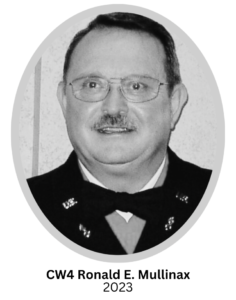 Chief Warrant Officer Four Ronald E. Mullinax was born on August 25, 1946, in Norton, Kansas to Earl and Mary Posson. He was adopted by John and Ada Mullinax. He grew up in Lenora, Kansas, graduating from Lenora Rural High School in 1965. After completing a Denver Automotive Institute training program, Ron worked at Look Body Shop in Norton until 1968.
Chief Warrant Officer Four Ronald E. Mullinax was born on August 25, 1946, in Norton, Kansas to Earl and Mary Posson. He was adopted by John and Ada Mullinax. He grew up in Lenora, Kansas, graduating from Lenora Rural High School in 1965. After completing a Denver Automotive Institute training program, Ron worked at Look Body Shop in Norton until 1968. CCMSgt Valerie D. Benton was born on Dec. 10, 1959 in Racine, Wisconsin, where she spent her childhood. She graduated from Washington Park High School in 1978. Soon after graduation she enlisted in the U. S. Air Force and headed to Basic Training at Lackland AFB, Texas in December of 1978. After completion of Basic training, she attended Technical Training at Lowry AFB, Colorado, and graduated as a Food Service Specialist.
CCMSgt Valerie D. Benton was born on Dec. 10, 1959 in Racine, Wisconsin, where she spent her childhood. She graduated from Washington Park High School in 1978. Soon after graduation she enlisted in the U. S. Air Force and headed to Basic Training at Lackland AFB, Texas in December of 1978. After completion of Basic training, she attended Technical Training at Lowry AFB, Colorado, and graduated as a Food Service Specialist.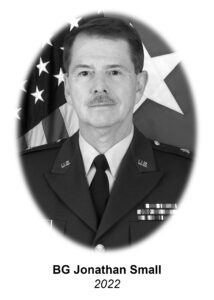 Brigadier General Jonathan P. Small served as The Adjutant General of Kansas from November 1, 2003 to January 4, 2004, culminating a 35-year military career as a distinguished attorney, community leader, citizen-soldier, and military leader. He served as Assistant Adjutant General-Army from 1999 to 2003, and as Commander of the Land Component for the Joint Force Headquarters-Kansas.
Brigadier General Jonathan P. Small served as The Adjutant General of Kansas from November 1, 2003 to January 4, 2004, culminating a 35-year military career as a distinguished attorney, community leader, citizen-soldier, and military leader. He served as Assistant Adjutant General-Army from 1999 to 2003, and as Commander of the Land Component for the Joint Force Headquarters-Kansas.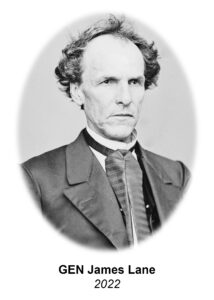 General James H. Lane was a militia leader during the Bleeding Kansas period, the commander of the Kansas “Jayhawker” Brigade during the Civil War, and was one of the first United States Senators from Kansas.
General James H. Lane was a militia leader during the Bleeding Kansas period, the commander of the Kansas “Jayhawker” Brigade during the Civil War, and was one of the first United States Senators from Kansas.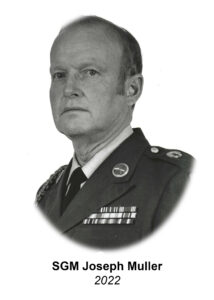 Sergeant Major Joseph T. “Jody” Muller was selected for the Kansas National Guard Hall of Fame for his exceptional service as a citizen soldier in the Kansas National Guard for over 41 years.
Sergeant Major Joseph T. “Jody” Muller was selected for the Kansas National Guard Hall of Fame for his exceptional service as a citizen soldier in the Kansas National Guard for over 41 years.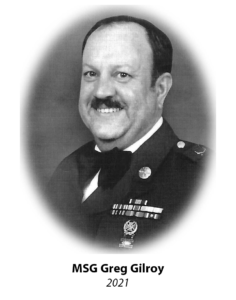 Master Sergeant Greg Gilroy was born on July 25, 1947 at Ottawa, Kansas. He was a lifelong resident of Ottawa, graduating from Ottawa High School in 1965. He then attended Emporia State University during the 1965-66 school year.
Master Sergeant Greg Gilroy was born on July 25, 1947 at Ottawa, Kansas. He was a lifelong resident of Ottawa, graduating from Ottawa High School in 1965. He then attended Emporia State University during the 1965-66 school year.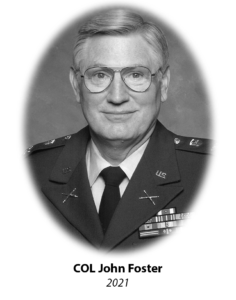
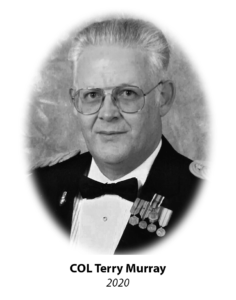
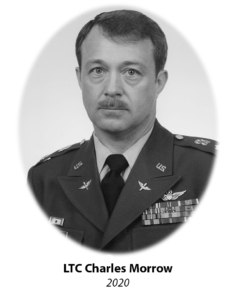


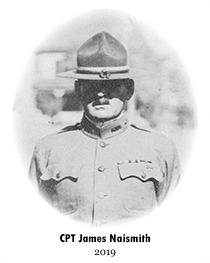
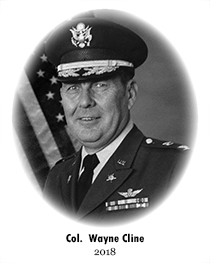
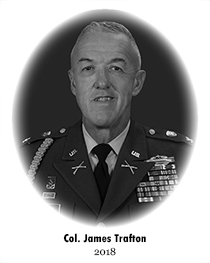
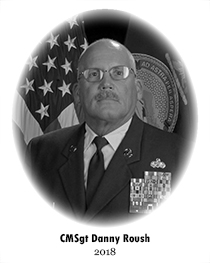
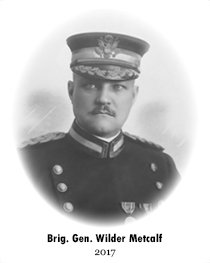
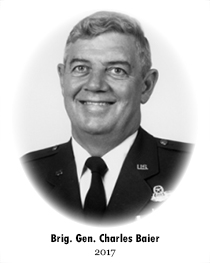
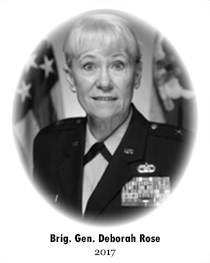 Brigadier General Deborah Rose entered military service with a direct commission into the United States Air Force Nurse Corps in March 1983, assigned to the 184th Tactical Fighter Group. She transferred to the 190th Clinic in December 1985. In October 1990, she deployed to Jeddah, Saudi Arabia, where she served in an Air Transportable Hospital during Desert Shield. In February 1991, she was activated and deployed to Offutt AFB, Nebraska, assigned to the hospital.
Brigadier General Deborah Rose entered military service with a direct commission into the United States Air Force Nurse Corps in March 1983, assigned to the 184th Tactical Fighter Group. She transferred to the 190th Clinic in December 1985. In October 1990, she deployed to Jeddah, Saudi Arabia, where she served in an Air Transportable Hospital during Desert Shield. In February 1991, she was activated and deployed to Offutt AFB, Nebraska, assigned to the hospital.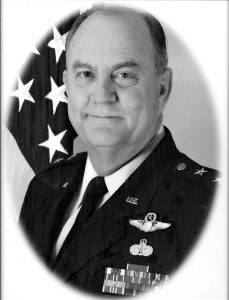
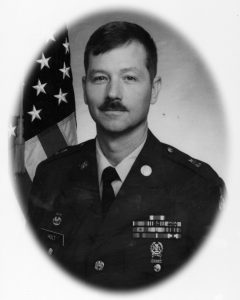 Sergeant Major Lynn E. Holt built his distinguished Kansas Army National Guard career developing strength, retaining Soldiers and insuring Soldiers received proper training. He served from the Detachment through State level. He is known for his ability to recognize Soldier needs at all levels. The same care he felt for Soldiers carried over into his community activities. SGM Holt’s passion for people and their needs exemplifies his true character. He devoted his entire adult life to the betterment of our nation, our state and the Kansas National Guard.
Sergeant Major Lynn E. Holt built his distinguished Kansas Army National Guard career developing strength, retaining Soldiers and insuring Soldiers received proper training. He served from the Detachment through State level. He is known for his ability to recognize Soldier needs at all levels. The same care he felt for Soldiers carried over into his community activities. SGM Holt’s passion for people and their needs exemplifies his true character. He devoted his entire adult life to the betterment of our nation, our state and the Kansas National Guard.